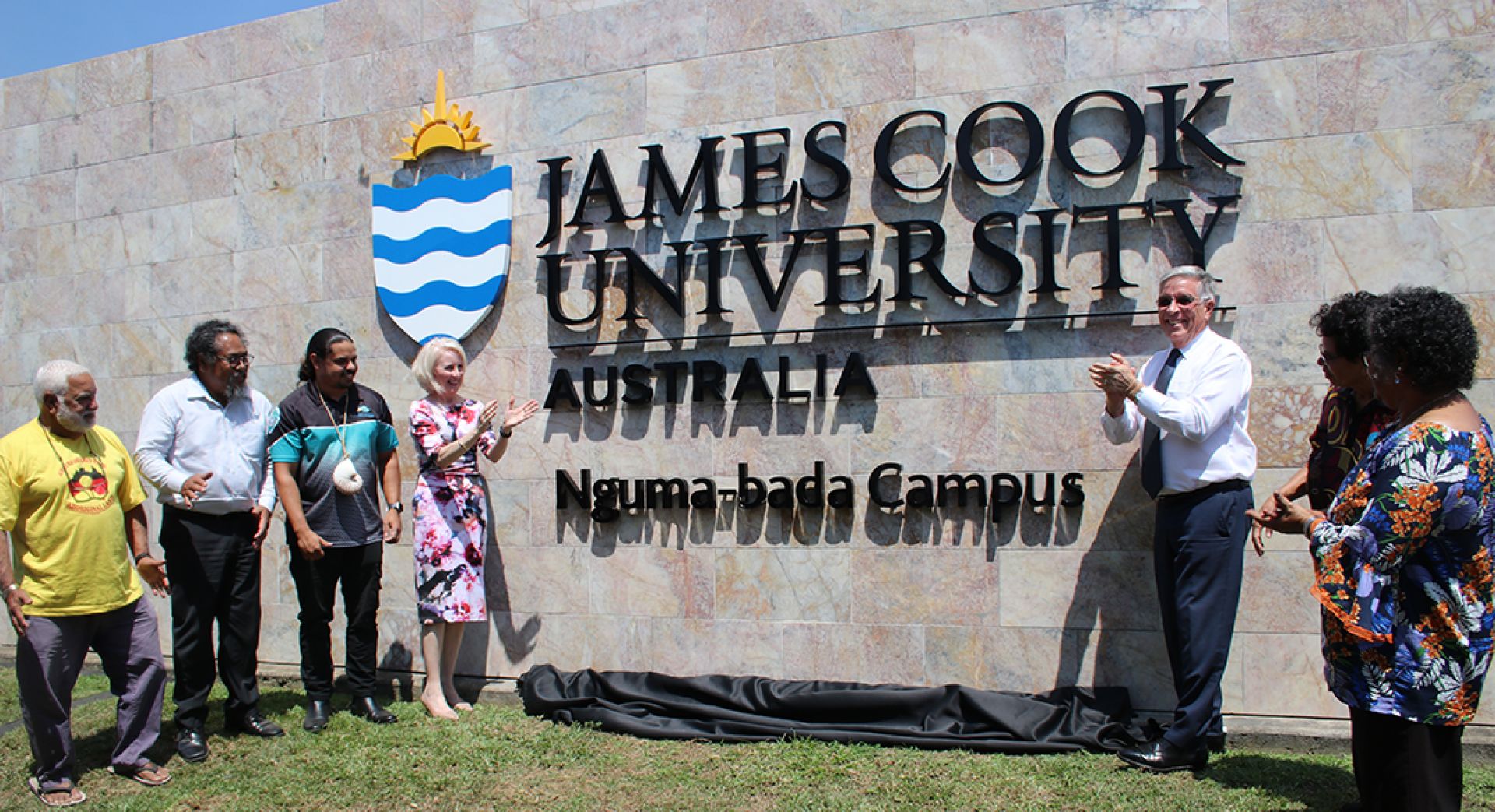Media Releases
Yirrganydji names for JCU's Cairns campuses

As part of its 50th birthday celebrations, James Cook University’s Queensland campuses have been given local Indigenous names to acknowledge the role of Aboriginal and Torres Strait Islander peoples in the advancement of the University.
This year JCU marks 50 years since its establishment as a university and 60 years of higher education in the north.
After consultation with Traditional Owners and Indigenous communities, each of JCU’s northern Australian campuses has been given an Indigenous language name.
Vice Chancellor Professor Sandra Harding said the naming ceremonies acknowledge and celebrate JCU’s campuses, reflecting a shared sense of connection to place.
“A crucial part of our 50th birthday celebrations is to promote recognition of Aboriginal and Torres Strait Islander knowledge and the significance of our place in northern Queensland and the Tropics more broadly - the knowledge shared and co-created, and the impact on the region and nation, as part of our enduring legacy after more than half a century in the North.
“JCU is an integral part of our region’s fabric, and having a local language name cements our connection to Country. It is a deep privilege to be provided this recognition and honour by the Traditional Owners."
JCU’s Smithfield campus in Cairns has been named Nguma-bada, which means belonging to tomorrow: 'Place for tomorrow's learning, knowledge and wisdom' from the Yirrgay (Yirrganydji) coastal dialect of Djabugay.
The Cairns City campus has been named Bada-jali, which means flowering of the Cocky Apple tree: 'Place and time for new beginnings and growth', also from the Yirrgay (Yirrganydji) coastal dialect of Djabugay.
The Townsville (Douglas) campus has been given the name Bebegu Yumba, which means 'Place of Learning' in the Birri-Gubba language, and the Mt Isa campus has been named Murtupuni, which means to 'come together, gather together' in the Kalkadoon language.
Indigenous language names will also be announced for JCU’s Mackay and Thursday Island campuses.
“Until now our campuses have not had official names other than the suburb in which they are located," Professor Harding said. "Adopting Indigenous names is an important acknowledgement of the role of Aboriginal and Torres Strait Islander people in the University’s past, present and future.
“The naming of each campus stands as tribute to JCU’s history and our deep respect for the traditional custodians of our campuses. It reflects our shared history and purpose and gives further effect to the University’s Reconciliation Action Plan and Strategy,” Professor Harding said.
The Pro Vice Chancellor of Indigenous Education and Strategy, Professor Martin Nakata, said JCU recognises the important contributions Aboriginal and Torres Strait Islander people make to the community.
“In our 50th birthday year, we want to recognise our campuses’ important place in the growth of the University, and have consulted local Indigenous groups to choose appropriate names for the campuses.”
“We are proud of the achievements of JCU's Australian Aboriginal and Torres Strait Islander students, graduates and staff, and we are proud of the cultural richness and diversity of our university community,” Professor Nakata said.
JCU commenced operations in 1960 as the University College of Townsville within the University of Queensland. In 1970, and to coincide with the bicentenary of Captain James Cook landing on the Australian continent, JCU was proclaimed as Queensland’s second university.
Media enquiries: linden.woodward@jcu.edu.au